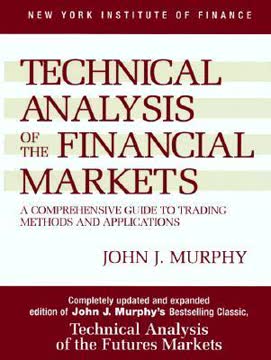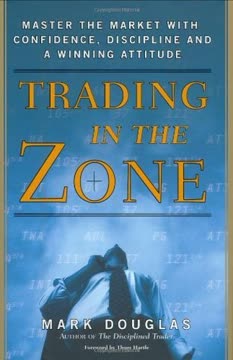ข้อสำคัญ
1. เข้าใจจิตวิทยาการเทรดหุ้นอย่างลึกซึ้ง
"ผมมักจะเล่นคนเดียวเสมอ นั่นคือวิธีที่สมองของผมทำงาน ผมต้องมองเห็นและคิดด้วยตัวเอง"
มุมมองส่วนบุคคลสำคัญมาก การเทรดที่ประสบความสำเร็จเป็นเรื่องของจิตวิทยาที่ต้องใช้ความคิดอิสระและพึ่งพาตัวเองอย่างแท้จริง Larry Livingston เน้นย้ำถึงความสำคัญของการพัฒนาวิธีวิเคราะห์ตลาดในแบบของตัวเอง แทนที่จะตามคนอื่นหรือความเชื่อเดิม ๆ อย่างไม่ตั้งคำถาม
คุณสมบัติทางจิตใจที่สำคัญ:
- ความเป็นอิสระทางความคิด
- ความมั่นใจในตัวเอง
- ความสามารถในการคิดวิเคราะห์
- การไม่ยึดติดกับความผันผวนของตลาด
การเทรดคือเกมทางจิตใจ ตลาดหุ้นไม่ได้ขึ้นอยู่กับการคำนวณตัวเลขเพียงอย่างเดียว แต่เป็นการเข้าใจพฤติกรรมมนุษย์ ความรู้สึกของตลาด และการตอบสนองทางจิตใจของตัวเองต่อความเปลี่ยนแปลง การสร้างกรอบความคิดที่แข็งแกร่งจึงเป็นกุญแจสู่ความสำเร็จในระยะยาว
2. ฝึกวินัยและการควบคุมตนเองในการเก็งกำไร
"การถูกต้องในเวลาที่เหมาะสมย่อมให้ผลตอบแทนเสมอ"
ความอดทนและการรอจังหวะ การเทรดที่ประสบความสำเร็จไม่ใช่การเคลื่อนไหวตลอดเวลา แต่เป็นการอดทนรอจังหวะที่เหมาะสม Livingston เน้นย้ำถึงการมีวินัยในการลงมือทำเฉพาะเมื่อสภาพตลาดเอื้ออำนวยเท่านั้น
กลยุทธ์วินัย:
- รอสัญญาณตลาดที่ชัดเจน
- หลีกเลี่ยงการเทรดในช่วงที่ไม่แน่นอน
- ควบคุมความอยากเทรดตลอดเวลา
- พัฒนาวิธีการเข้าซื้อและขายอย่างเป็นระบบ
กลไกการควบคุมตนเอง เทรดเดอร์ต้องเรียนรู้ที่จะควบคุมอารมณ์ หลีกเลี่ยงความเสี่ยงที่ไม่จำเป็น และรักษาวิธีการที่เป็นระบบ วินัยนี้แยกมืออาชีพออกจากนักเก็งกำไรมือสมัครเล่น
3. เรียนรู้จากความผิดพลาดและใช้ประสบการณ์ให้เป็นประโยชน์
"ทุกครั้งที่ผมเสียเงิน ผมได้เรียนรู้บางอย่าง เมื่อเสียเงิน ผมไม่ได้แค่ต้องการรู้ว่าควรหลีกเลี่ยงอะไร แต่ต้องการรู้ว่าควรทำอะไร"
ความผิดพลาดคือโอกาสเรียนรู้ Livingston มองว่าการขาดทุนทางการเงินไม่ใช่ความล้มเหลว แต่เป็นค่าธรรมเนียมการเรียนรู้บทเรียนสำคัญในตลาด ทุกความผิดพลาดคือโอกาสในการปรับปรุงกลยุทธ์และความเข้าใจ
กระบวนการเรียนรู้:
- วิเคราะห์การเทรดแต่ละครั้งอย่างเป็นระบบ
- บันทึกการตัดสินใจและผลลัพธ์
- หาจุดเด่นและจุดด้อยของแต่ละการเทรด
- ปรับปรุงกลยุทธ์อย่างต่อเนื่อง
การเรียนรู้จากประสบการณ์ ความชำนาญแท้จริงมาจากการสะสมประสบการณ์ การทบทวนผลงานที่ผ่านมา และนำบทเรียนเหล่านั้นไปใช้ตัดสินใจในอนาคตได้ดียิ่งขึ้น
4. เข้าใจแนวโน้มตลาดและเดินตามเส้นทางที่ต้านทานน้อยที่สุด
"เส้นทางที่ต้านทานน้อยที่สุดถูกกำหนดโดยเทป"
ความเข้าใจพลวัตตลาด การเทรดที่ประสบความสำเร็จต้องเข้าใจแนวโน้มตลาดโดยรวมและเลือกเดินตามเส้นทางที่ต้านทานน้อยที่สุด นั่นคือการปรับกลยุทธ์ให้สอดคล้องกับสภาพตลาดแทนที่จะฝืน
เทคนิควิเคราะห์แนวโน้ม:
- ศึกษาความรู้สึกของตลาด
- สังเกตการเคลื่อนไหวของราคา
- เข้าใจพฤติกรรมกลุ่มนักลงทุน
- รู้จักวัฏจักรของตลาด
กลยุทธ์ที่ยืดหยุ่น เทรดเดอร์ต้องพร้อมปรับเปลี่ยนวิธีการตามสภาพตลาดเสมอ โดยให้ความสำคัญกับแรงขับเคลื่อนตามธรรมชาติของตลาด
5. หลีกเลี่ยงกับดักของข่าวลือและคำแนะนำ
"ผมทำเงินด้วยการยึดมั่นในความเห็นของตัวเอง ผมไม่ขายหรือใช้ความเห็นนั้นเป็นทุน"
การตัดสินใจอย่างอิสระ ข่าวลือและคำแนะนำที่ไม่ได้รับการตรวจสอบเป็นสิ่งที่ทำให้เทรดเดอร์หลงทาง การเทรดที่ประสบความสำเร็จต้องพัฒนาทักษะวิเคราะห์และเชื่อมั่นในความเห็นของตัวเอง
วิธีหลีกเลี่ยงกับดักข้อมูล:
- ตรวจสอบข้อมูลด้วยตัวเอง
- พัฒนาทักษะการวิจัยส่วนบุคคล
- มีท่าทีสงสัยต่อคำแนะนำที่ไม่ได้ขอ
- มุ่งเน้นการวิเคราะห์พื้นฐานของตลาด
การคิดวิเคราะห์อย่างมีวิจารณญาณ ความสามารถในการกรองเสียงรบกวนและตัดสินใจอย่างมีเหตุผลเป็นทักษะสำคัญในการเทรด
6. เข้าใจความแตกต่างระหว่างการลงทุนและการเก็งกำไร
"การเก็งกำไรเป็นธุรกิจที่ยากและท้าทาย นักเก็งกำไรต้องทำงานตลอดเวลา ไม่เช่นนั้นจะไม่มีงานให้ทำ"
วิธีการเทรดที่แตกต่างกัน การลงทุนและการเก็งกำไรเป็นกิจกรรมที่มีความแตกต่างกันอย่างชัดเจน ต้องใช้ทัศนคติ ทักษะ และกลยุทธ์ที่ต่างกัน
ความแตกต่างหลัก:
- ระยะเวลาการถือครอง
- ความสามารถในการรับความเสี่ยง
- การประมวลผลข้อมูล
- วิธีการตัดสินใจ
ทัศนคติแบบมืออาชีพ นักเก็งกำไรที่ประสบความสำเร็จจะถือการเทรดเป็นอาชีพที่ต้องเรียนรู้ ปรับตัว และปฏิบัติอย่างมีวินัยอย่างต่อเนื่อง
7. ควบคุมอารมณ์และรักษาความมีเหตุผล
"การโกรธตลาดไม่ช่วยให้อะไรดีขึ้น"
การควบคุมอารมณ์ ปฏิกิริยาอารมณ์ที่รุนแรงอาจทำลายการเทรดได้ การรักษามุมมองที่มีเหตุผลและเป็นกลางจึงเป็นสิ่งจำเป็นสำหรับความสำเร็จอย่างต่อเนื่อง
กลยุทธ์จัดการอารมณ์:
- ฝึกการไม่ยึดติดทางอารมณ์
- สร้างกฎเกณฑ์การเทรดอย่างเป็นระบบ
- ฝึกสติและความตระหนักรู้
- เรียนรู้จากทั้งความสำเร็จและความล้มเหลว
ความแข็งแกร่งทางจิตใจ ความสามารถในการรักษาความสงบและตัดสินใจอย่างชัดเจนภายใต้ความกดดันคือเครื่องหมายของเทรดเดอร์ที่ประสบความสำเร็จ
8. สร้างความยืดหยุ่นและความสามารถในการปรับตัว
"ถ้าผมเสียเงิน ผมลืมมันในคืนเดียว ผมรู้ว่าจะมีโอกาสใหม่เสมอ"
ปรัชญาความยืดหยุ่น Livingston เน้นย้ำความสำคัญของการฟื้นตัวจากความล้มเหลว มองว่าคือโอกาสชั่วคราวและบทเรียนที่มีค่า
การสร้างความยืดหยุ่น:
- พัฒนาทัศนคติแบบเติบโต
- รักษาสภาพการเงินและอารมณ์ให้มั่นคง
- เรียนรู้จากความล้มเหลวอย่างรวดเร็ว
- ปรับตัวได้ดีในสภาพตลาดที่เปลี่ยนแปลง
การพัฒนาอย่างต่อเนื่อง เทรดเดอร์ที่ประสบความสำเร็จมองความท้าทายเป็นโอกาสในการเติบโตและพัฒนา
9. พัฒนาวิธีการเทรดอย่างเป็นระบบ
"การสังเกต ประสบการณ์ ความทรงจำ และคณิตศาสตร์ คือสิ่งที่เทรดเดอร์ที่ประสบความสำเร็จต้องพึ่งพา"
การเทรดอย่างมีระบบ การสร้างวิธีการเทรดที่มีโครงสร้างและมีวินัย โดยอาศัยการสังเกตและวิเคราะห์อย่างรอบคอบ
องค์ประกอบของระบบ:
- การวิจัยตลาดอย่างเข้มงวด
- วิธีการเทรดที่สม่ำเสมอ
- การวิเคราะห์เชิงปริมาณ
- การเรียนรู้และปรับปรุงอย่างต่อเนื่อง
การปฏิบัติอย่างเป็นระบบ ความสำเร็จเกิดจากการใช้วิธีการที่มีระบบอย่างสม่ำเสมอและเป็นกลาง
10. เข้าใจการปั่นหุ้นและกลไกของมัน
"การปั่นหุ้นคือศิลปะของการโฆษณาผ่านเทป"
กลไกตลาด การเข้าใจวิธีการปั่นหุ้นช่วยให้เทรดเดอร์มีความเข้าใจลึกซึ้งและสามารถรับมือได้อย่างชาญฉลาด
ความรู้เกี่ยวกับการปั่นหุ้น:
- รู้จักเทคนิคการมีอิทธิพลต่อตลาด
- เข้าใจพลวัตทางจิตวิทยาของตลาด
- พัฒนาทักษะการสังเกตอย่างมีวิจารณญาณ
- หลีกเลี่ยงการถูกปั่นหุ้นหลอกลวง
ความตระหนักรู้เชิงกลยุทธ์ ความรู้เรื่องการปั่นหุ้นช่วยให้เทรดเดอร์ตัดสินใจได้อย่างมีข้อมูลและมีกลยุทธ์มากขึ้น
อัปเดตล่าสุด:
FAQ
What's Reminiscences of a Stock Operator about?
- Fictionalized Memoir: The book is a fictionalized account of Jesse Livermore's life, a renowned stock trader from the early 20th century, narrated by Edwin Lefèvre.
- Trading Insights: It delves into the psychology of trading, market behavior, and the lessons learned from both successes and failures in the stock market.
- Personal Journey: The narrative follows the protagonist's journey through the stock market, detailing his mistakes, successes, and the lessons learned along the way.
Why should I read Reminiscences of a Stock Operator?
- Timeless Wisdom: Despite being published in 1923, the book contains trading principles and philosophies that remain relevant to modern investors and traders.
- Real-Life Lessons: Readers can learn from Livermore's experiences, including his mistakes and triumphs, which provide valuable lessons on risk management and market psychology.
- Engaging Narrative: Lefèvre's storytelling makes complex trading concepts accessible and engaging, making it a compelling read for both novice and experienced traders.
What are the key takeaways of Reminiscences of a Stock Operator?
- Understanding Market Psychology: The book highlights the importance of understanding the psychology of the market and the behavior of other traders.
- Importance of Timing: Livermore emphasizes that timing is crucial; one must act when the market conditions are right, not based on emotions or external pressures.
- Learning from Mistakes: The narrative stresses the value of learning from one’s mistakes and adapting strategies accordingly to improve future trading outcomes.
What are the best quotes from Reminiscences of a Stock Operator and what do they mean?
- "The tape does not concern itself with the why and the wherefore.": This quote underscores the idea that traders should focus on market movements rather than trying to rationalize them.
- "A man may beat a stock or a group at a certain time, but no man living can beat the stock market!": This emphasizes the unpredictability of the market and the futility of trying to outsmart it consistently.
- "It is literally true that millions come easier to a trader after he knows how to trade than hundreds did in the days of his ignorance.": This reflects the importance of knowledge and experience in trading, suggesting that understanding the market leads to greater success.
What trading strategies does Livermore discuss in Reminiscences of a Stock Operator?
- Tape Reading: Livermore discusses the importance of reading the tape to understand price movements and market trends, which is a fundamental skill for traders.
- Pyramiding: He explains the strategy of pyramiding, which involves adding to a winning position as the price moves in the trader's favor, thereby maximizing profits.
- Cutting Losses: Livermore emphasizes the necessity of cutting losses quickly to prevent small losses from becoming larger, a critical aspect of risk management.
How does Livermore define a successful trader in Reminiscences of a Stock Operator?
- Self-Awareness: A successful trader must possess self-awareness, understanding their own psychological tendencies and how they affect trading decisions.
- Patience and Discipline: Livermore highlights that patience and discipline are essential traits, allowing traders to wait for the right opportunities and stick to their strategies.
- Adaptability: The ability to adapt to changing market conditions and learn from past mistakes is crucial for long-term success in trading.
What mistakes does Livermore frequently make in Reminiscences of a Stock Operator?
- Overtrading: Livermore often reflects on the mistake of overtrading, where he would enter and exit positions too frequently, leading to unnecessary losses.
- Ignoring Market Conditions: He discusses times when he ignored broader market conditions and focused too much on individual stocks, which resulted in poor trading decisions.
- Following Tips: Livermore admits to being swayed by tips from others, which led him to make trades that contradicted his own analysis and instincts.
How does Livermore's approach to risk differ from that of other traders in Reminiscences of a Stock Operator?
- Calculated Risks: Livermore takes calculated risks based on thorough analysis and market conditions, rather than gambling or following the crowd.
- Emphasis on Margins: He discusses the importance of maintaining adequate margins to protect against losses, which is a more disciplined approach compared to many traders who may over-leverage.
- Long-Term Perspective: Unlike many traders who focus on short-term gains, Livermore emphasizes the importance of understanding long-term market trends and positioning accordingly.
What role does psychology play in trading according to Reminiscences of a Stock Operator?
- Emotional Control: Livermore stresses the need for emotional control, as fear and greed can lead to irrational trading decisions that result in losses.
- Market Sentiment: He discusses how understanding market sentiment and the psychology of other traders can provide insights into potential market movements.
- Self-Reflection: The narrative encourages traders to engage in self-reflection to understand their own psychological triggers and how they impact trading behavior.
How does Livermore view the relationship between speculation and investment in Reminiscences of a Stock Operator?
- Speculation vs. Investment: Livermore distinguishes between speculation, which involves short-term trading based on price movements, and investment, which focuses on long-term value.
- Different Mindsets: He notes that speculators and investors have different mindsets; speculators must be more agile and responsive to market changes, while investors can afford to be patient.
- Risk Tolerance: The book highlights that speculation typically involves higher risk and requires a different approach to risk management compared to traditional investing.
What lessons does Livermore learn about market cycles in Reminiscences of a Stock Operator?
- Cyclical Nature: Livermore learns that markets are cyclical, with periods of expansion followed by contraction, and that understanding these cycles is key to successful trading.
- Timing the Market: He emphasizes the importance of timing in relation to market cycles, knowing when to enter and exit positions based on the prevailing cycle.
- Historical Patterns: The narrative illustrates how historical patterns can provide insights into future market behavior, allowing traders to anticipate potential movements.
How does the protagonist recover from his losses in Reminiscences of a Stock Operator?
- Learning from Mistakes: The protagonist emphasizes the importance of learning from past mistakes and using those lessons to inform future trading decisions.
- Gradual Rebuilding: He gradually rebuilds his trading capital by adopting a more disciplined approach and focusing on sound trading principles, rather than impulsive decisions.
- Emotional Resilience: The narrative illustrates the protagonist's emotional resilience, as he learns to manage his feelings and maintain a clear focus on his trading strategy, ultimately leading to his recovery.
รีวิว
Reminiscences of a Stock Operator ได้รับคำวิจารณ์ที่หลากหลาย บางคนชื่นชมในความลึกซึ้งเหนือกาลเวลาที่สะท้อนจิตวิทยาการเทรดและธรรมชาติของมนุษย์ในตลาดการเงิน ผู้อ่านหลายท่านชื่นชอบการเล่าเรื่องที่น่าติดตามและมุมมองทางประวัติศาสตร์ที่หนังสือนำเสนอ ขณะเดียวกันก็มีบางส่วนที่มองว่าหนังสือมีเนื้อหาซ้ำซากหรือเก่าเกินไป จนตั้งคำถามถึงความเหมาะสมกับการลงทุนในยุคปัจจุบัน นักวิจารณ์บางรายเห็นว่าหนังสือยกย่องการเก็งกำไรจนเกินไป และอาจทำให้นักลงทุนมือใหม่เข้าใจผิด แม้จะมีอายุหลายสิบปีแล้ว หนังสือเล่มนี้ยังคงได้รับความนิยมในหมู่ผู้เชี่ยวชาญด้านการเงิน ด้วยบทเรียนสำคัญเกี่ยวกับพฤติกรรมตลาด การบริหารความเสี่ยง และความสำคัญของวินัยในตนเองในการเทรดหุ้น
Similar Books














